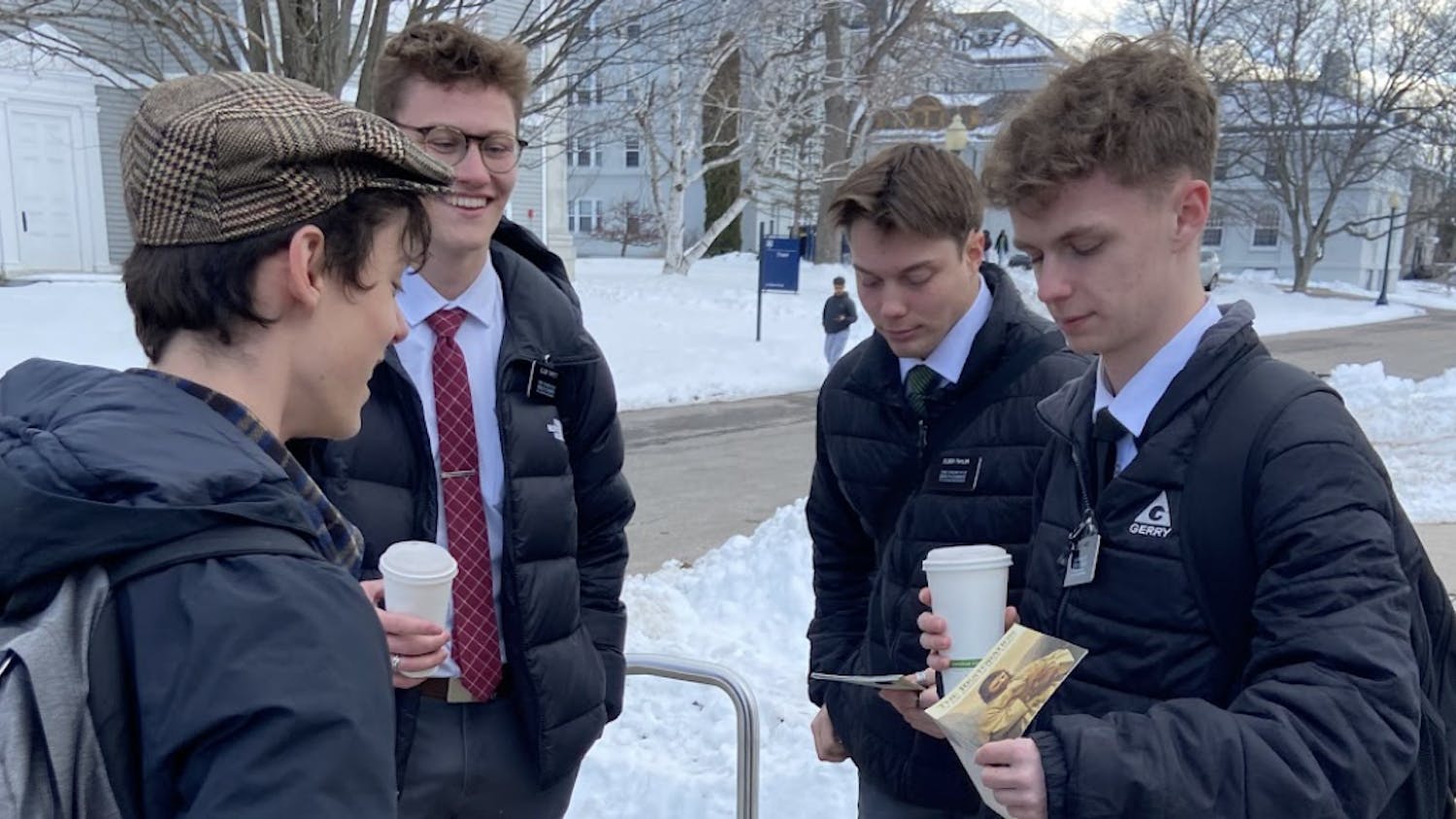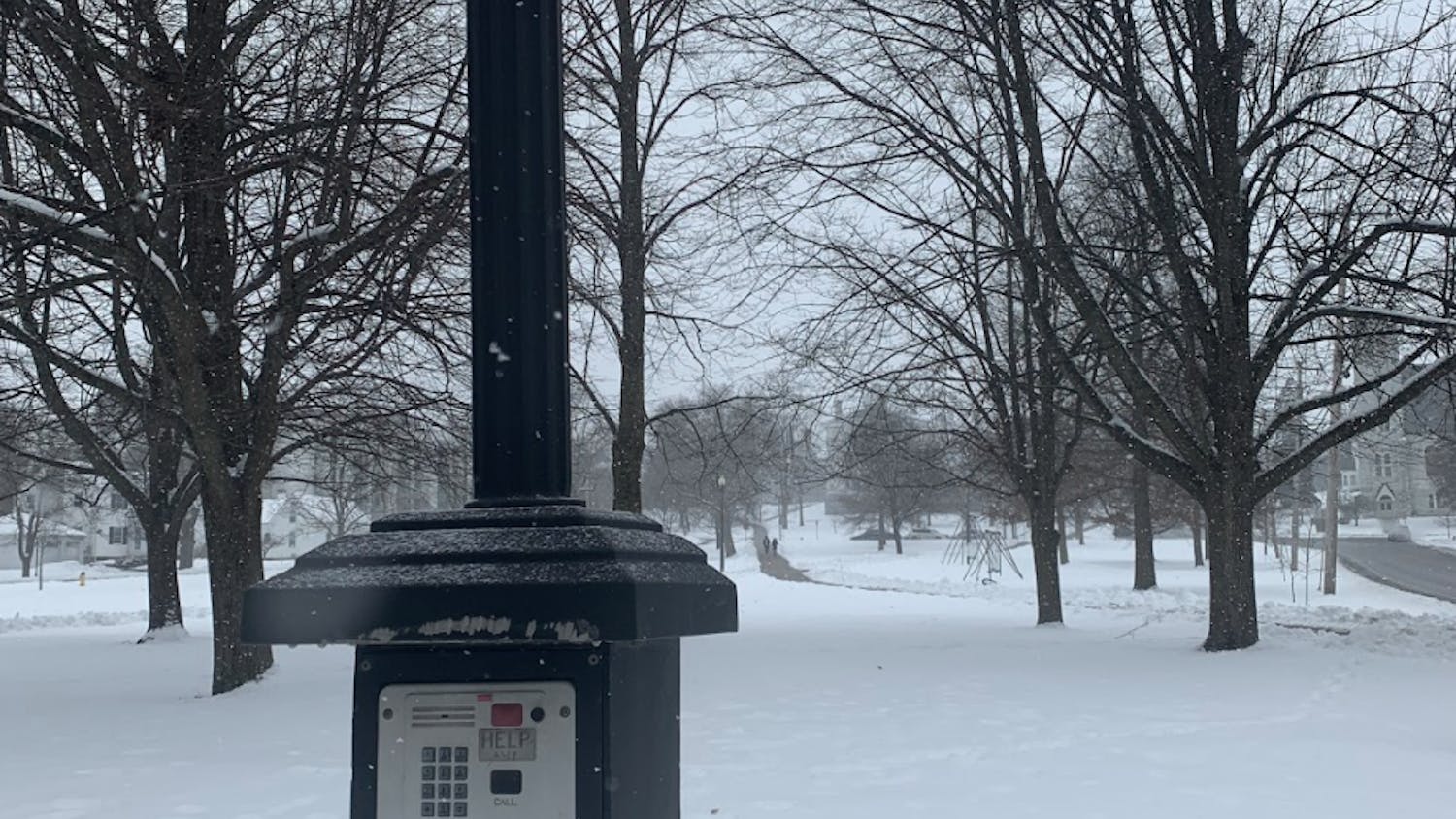At It Happens Here, an annual tradition at Middlebury since 2011, members of the student body gather to hear the stories of sexual violence from their peers. This tradition began with Margo Cramer ’12 and Luke Carroll Brown ’13.5 as a way to give power to the voices of survivors. Elevating and recognizing narratives of sexual violence is important because these experiences have often remained unvoiced. We hope that in sharing stories as a collective, we foster a safe space for people to process their trauma.
Middlebury students all come from different towns, cities, countries, economic backgrounds, ethnicities and races. Yet our backgrounds are not exclusive to survivors’ healing at IHH and understanding the stories of others. Storytelling presents a collective healing space to connect survivors in our journeys at Middlebury.
So why should you go to It Happens Here 2023?
Too often sexual assault is underreported or not reported at all. No sentences are given, no lasting solutions established, and the cycle of violence in our society continues. Shame often prevents victims of all genders and sexual orientations from reporting their sexual assault. In the event that a sentence is handed down,“justice” is served without aims to prevent future sexual violence. The memory of what occurred lasts forever. Survivors are left to deal with the trauma of what somebody else did to them for the rest of their lives. It Happens Here provides a space to share these stories with an audience. Having witnesses present for this demonstration empowers survivors and the validity of their story. Whether survivors would like to remain anonymous or read their own story, IHH allows them to express themselves in a space free of judgment.
In addition to the storytelling event, we aim to create a broader conversation about rape culture at Middlebury. The 2021–2022 student-body Zeitgeist survey collected data surrounding sexual assault; 105 students reported to have been sexually assaulted on campus. We hope that survivors’ stories will demonstrate how these situations are not black and white and that there are many complexities that surround them.
While one may think that they are not contributing to the issue directly, it's possible to contribute to a culture that overlooks consent. Pretending not to see questionable behavior from friends, making light of harassment, engaging in objectifying “locker room talk" or pressuring your friends to “make a move” are all ways it's possible to contribute indirectly. While you may not be the one physically assaulting someone, you could have contributed to the mindset of rape culture that justifies sexual assault. The mandatory online training required for first years has likely escaped upperclassmen’s memories long ago. However, the conversation surrounding behavior, violent language and consent can always be refreshed.
For survivors, we provide outlets other than storytelling to express your experience with sexual violence. Along with a written story (go/ihh2023/), we invite you to submit artwork, poems, photography and more to go/ihhart/. If you feel comfortable, we welcome you to attend IHH 2023 on April 26 at 6 p.m. at Wilson Hall.
Though we want to continue pursuing a world in which this violence does not occur, it is critical to engage in these conversations because sexual assault does happen at Middlebury, as much as we want to believe it doesn’t exist on our campus. It Happens Here.



